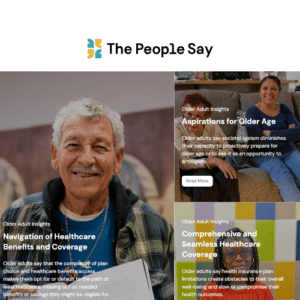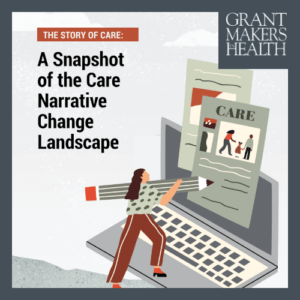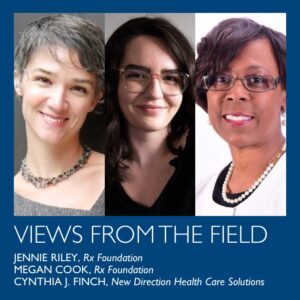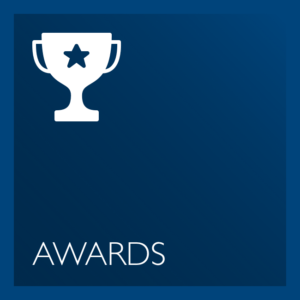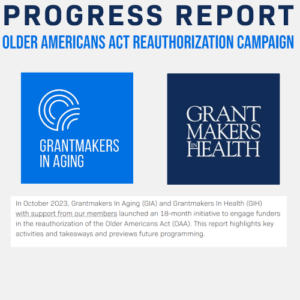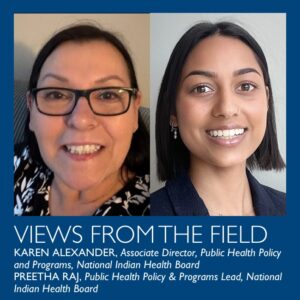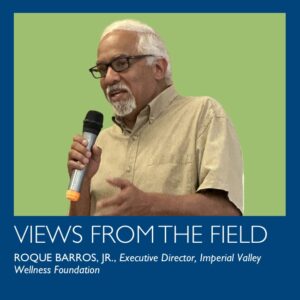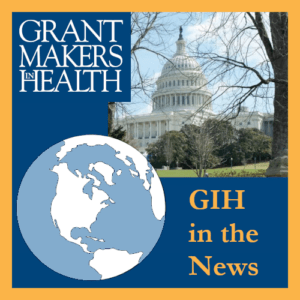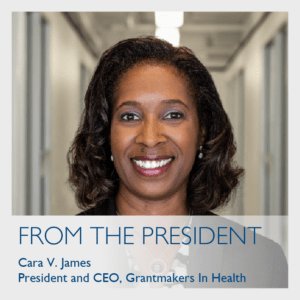Featured Resources
The People Say: A New Older Adult and Caregiver Policy and Research Tool
An online research hub features first-hand insights from older adults and caregivers on the issues most important to them, as well as feedback from experts on policies affecting older adults. The project particularly focuses on the experiences of communities often under-consulted in policymaking, including older adults of color, those who are low income, and/or those who live in rural areas where healthcare isn’t easily accessible.
The Story of Care: A Snapshot of the Care Narrative Change Landscape
At some point, every one of us will need care or need to provide care. The COVID-19 pandemic put a spotlight on the extraordinary contributions of caregivers and exposed the failings caused by our nation’s lack of care policies, especially for communities of color. Deploying narrative-change strategies across care-related issues will help create the conditions for cultural and policy progress. The goal of this report is to share with funders the promising narrative-change strategies and tactics that have been identified, a directory of funders and grantees who are supporting this work, and how philanthropy can best support this effort.
GIH Advocacy for the Reauthorization of the Older Americans Act (OAA)
The OAA provides critical services that address the social drivers of health for older adults. Grantmakers In Health (GIH) and Grantmakers In Aging (GIA) are partnering to engage funders in advancing the reauthorization of this important piece of legislation.
Explore Population Health Topics
Latest Resources
CareQuest Institute for Oral Health: July 2025
A new comprehensive white paper and collection of use cases, co-authored by CareQuest Institute for Oral Health and 19 academic institutions, explores interprofessional education (IPE) in health care, with a particular focus on oral health. The authors find that IPE is essential to foster collaborative, patient-centered health care.
Statement from Cara V. James in Philanthropy Women About Consequences of New Administration’s Actions
A statement from Grantmakers In Health (GIH) President and CEO Cara V. James was republished in an article in Philanthropy Women on May 15, 2025, titled “Health Care Donors Urged to Take a Stand Amidst Ongoing Funding Cuts.” The statement was originally published by GIH to mark the first 100 days of the new administration, denouncing the harmful policies, devastating funding cuts, and threats to democracy that have taken place in that time. The editor included an editor’s note that Dr. James’ statement struck a deep chord and urged funders to step up to mitigate the damage of the administration’s extreme and unprecedented withdrawal of funding for health.
Maternal Health in American Indian/Alaska Native Communities: Challenges, Opportunities, and Pathways Forward
Maternal health is a cornerstone of any community’s well-being, yet American Indian and Alaska Native (AI/AN) women face disproportionate challenges in achieving safe and healthy pregnancies. Historical inequities, systemic barriers, and the enduring effects of colonization have resulted in significant maternal health disparities within Native communities. However, these same communities are also sources of resilience, creativity, and innovation. Maternal health programs aimed at centering community in tradition, culture, and resiliency can offer unique, cross-sectoral solutions to complex systemic health barriers for AI/AN families.
Publications and Reports
Getting Prescription Drugs to Those Who Need Them Most
There are major changes taking place in the way elderly and disabled people pay for prescription drugs. These changes are being ushered in by the new Medicare law, which, if it lives up to its promise, will be incredibly helpful to some of the most vulnerable members of our society. What are the details of the new law? How many people will it affect? How will low-income people be assisted? What are the implementation challenges? How are they being addressed by the federal government? What can grantmakers do to help?
New Choices and Hard Decisions: Helping Seniors Navigate Medicare
Educating seniors on the changes to the Medicare program will be a challenge for both the public and private sectors. Reaching the nation’s 41 million Medicare beneficiaries — 35 million of whom are over the age of 65 — will require a mix of customized, one-on-one assistance and broad education campaigns. This Issue Focus proposes that providing information and referral services for seniors and their families is an area ripe for foundation work, and outlines a number of opportunities for grantmakers.
Addressing Maternal Depression
Maternal depression affects not only a woman herself, but also her family, friends, and coworkers. Of particular concern is maternal depression’s link to problems in children’s health, mental health, and development. This Issue Focus highlights ways that health grantmakers can address maternal depression and its consequences, including educating women and health care providers, promoting screening and treatment, integrating mental health services into programs serving pregnant and parenting women, and supporting research.
Connect With Funder Peers on Population Health
Interested in exchanging strategies, information, and questions with your funder peers? Sign up for GIH E-Forums.


